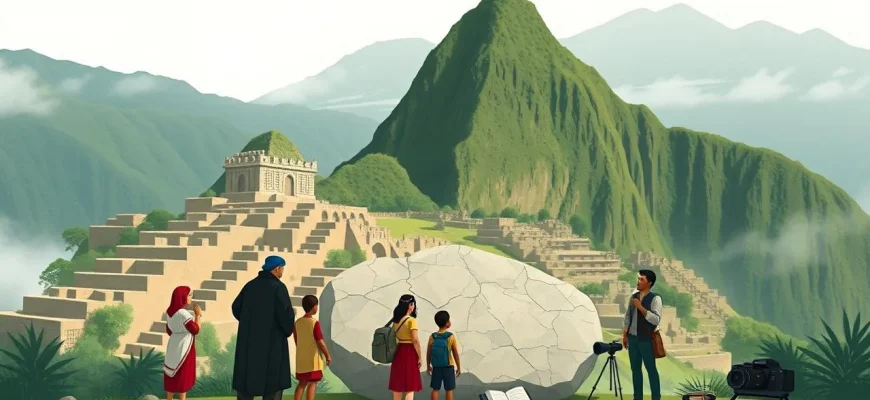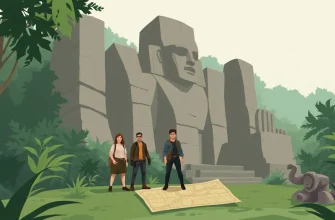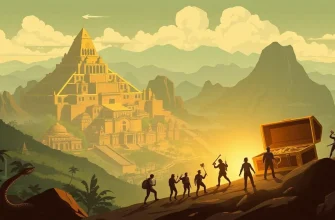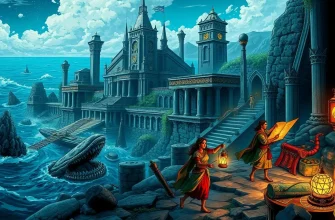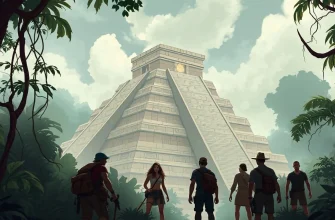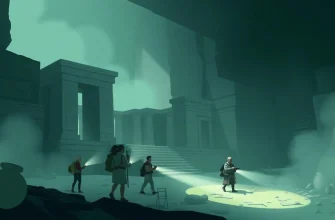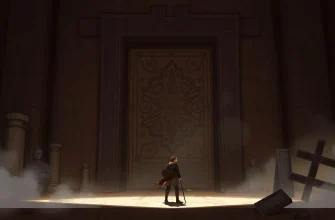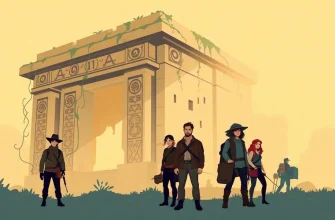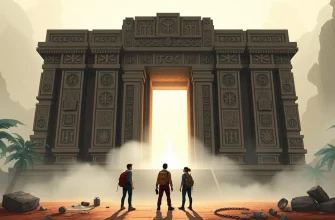Embark on a cinematic journey through time to explore the enigmatic world of the ancient Inca civilization. These films not only offer a visual feast of the majestic ruins and landscapes but also delve into the rich tapestry of Inca culture, their myths, and the enduring legacy they left behind. Whether you're a history buff, an adventure seeker, or simply love a good story, this curated list will transport you to the heart of the Andes, where the past whispers secrets through the stones.

The Secret of the Incas (1954)
Description: This classic adventure film takes us on a treasure hunt in Peru, where the protagonist seeks the legendary treasure of the Incas, hidden in Machu Picchu. It's a thrilling ride through the ancient city, showcasing its beauty and mystery.
Fact: The film was shot on location at Machu Picchu, making it one of the first Hollywood films to do so. It also inspired elements of the Indiana Jones series.
 Watch Now
Watch Now 
Aguirre, the Wrath of God (1972)
Description: Although primarily about the Spanish conquistadors, the film captures the essence of the Inca civilization through its portrayal of the jungle and the search for El Dorado, a mythical city of gold.
Fact: The film was shot in the Amazon jungle, with real-life dangers adding to the authenticity of the setting.
 Watch Now
Watch Now 
The Emperor's New Groove (2000)
Description: While not strictly about the Incas, this animated comedy is set in an Inca-inspired world, offering a light-hearted take on ancient South American culture with its vibrant visuals and humorous plot.
Fact: The film was originally conceived as a more serious drama titled "Kingdom of the Sun," but was retooled into a comedy.
 Watch Now
Watch Now 
The Green Inferno (2013)
Description: This modern horror film, while not about the Incas, captures the spirit of adventure and the clash with indigenous cultures, similar to the themes found in Inca-related narratives.
Fact: The film was directed by Eli Roth, known for his horror movies, and was inspired by the Italian cannibal films of the 1970s.
 Watch Now
Watch Now 
The Royal Hunt of the Sun (1969)
Description: This epic drama recounts the conquest of the Inca Empire by Francisco Pizarro, focusing on the clash of cultures and the tragic fate of Atahualpa, the last Inca emperor.
Fact: The film features Christopher Plummer as Atahualpa, delivering a powerful performance that captures the dignity and despair of the Inca leader.
 30 Days Free
30 Days Free 
The Mountain of the Cannibal God (1978)
Description: This Italian adventure film, while controversial, delves into the exploration of ancient ruins in the Amazon, reminiscent of the Inca's lost cities, with a mix of horror and adventure.
Fact: The film was banned in several countries due to its graphic content but has since gained a cult following.
 30 Days Free
30 Days Free 
The Emerald Forest (1985)
Description: While not directly about the Incas, this film explores the clash between modern civilization and indigenous cultures in the Amazon, reflecting themes of cultural preservation akin to the Inca legacy.
Fact: The film was inspired by real-life stories of children raised by indigenous tribes.
 30 Days Free
30 Days Free 
The Lost City of Z (2016)
Description: Although focused on the Amazon, this film touches on the exploration of ancient civilizations, including references to the Incas, through the story of Percy Fawcett's search for a lost city.
Fact: The film was adapted from David Grann's non-fiction book of the same name, which explores the real-life disappearance of Fawcett in the Amazon.
 30 Days Free
30 Days Free 
The Quest for El Dorado (1986)
Description: This documentary-style film explores the legend of El Dorado, taking viewers on a journey through the Andes and into the heart of ancient Inca lore, blending history with adventure.
Fact: The film includes interviews with historians and archaeologists, providing a factual backdrop to the mythical quest.
 30 Days Free
30 Days Free 
The Lost City of Gold (1982)
Description: Part of the "Road to El Dorado" series, this film follows adventurers in search of the fabled city, showcasing the grandeur of Inca architecture and the mysteries of their civilization.
Fact: The film was shot in Peru, utilizing real Inca ruins to enhance the authenticity of the setting.
 30 Days Free
30 Days Free 
